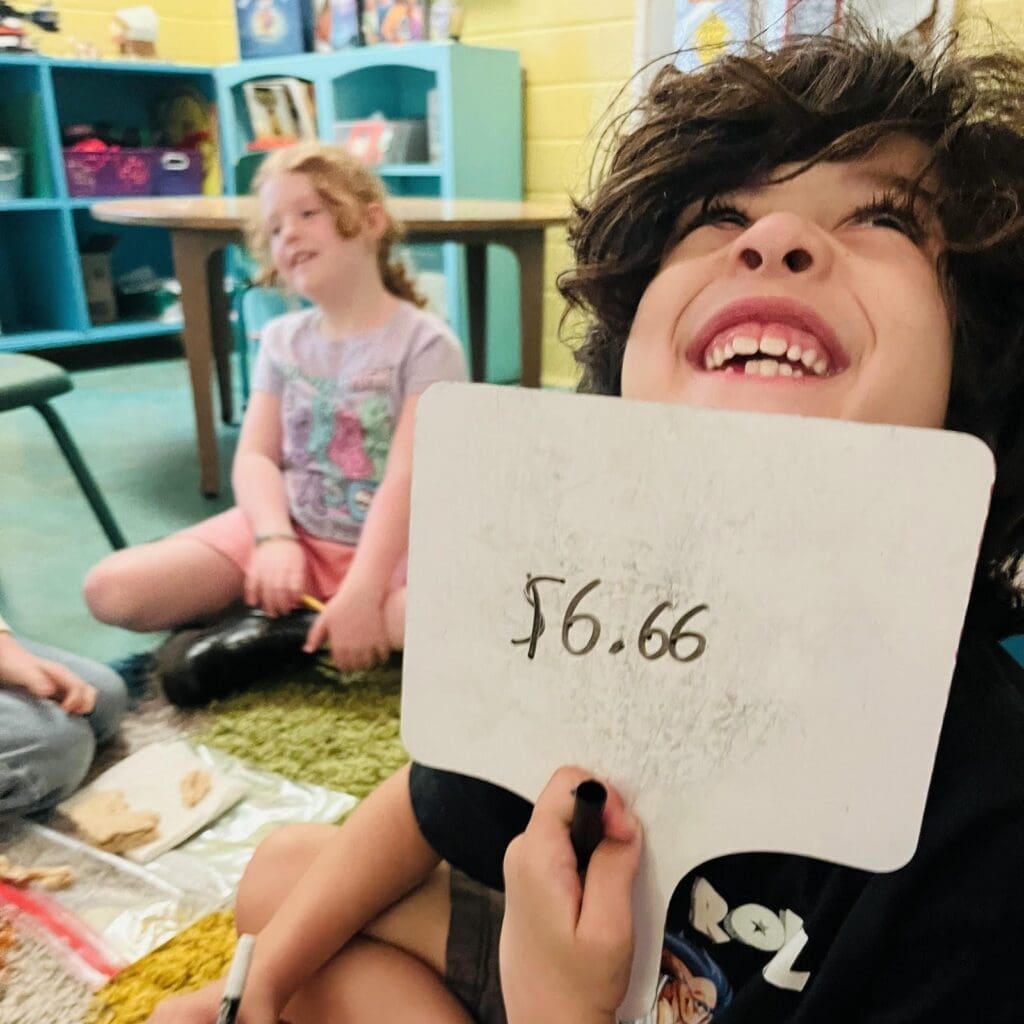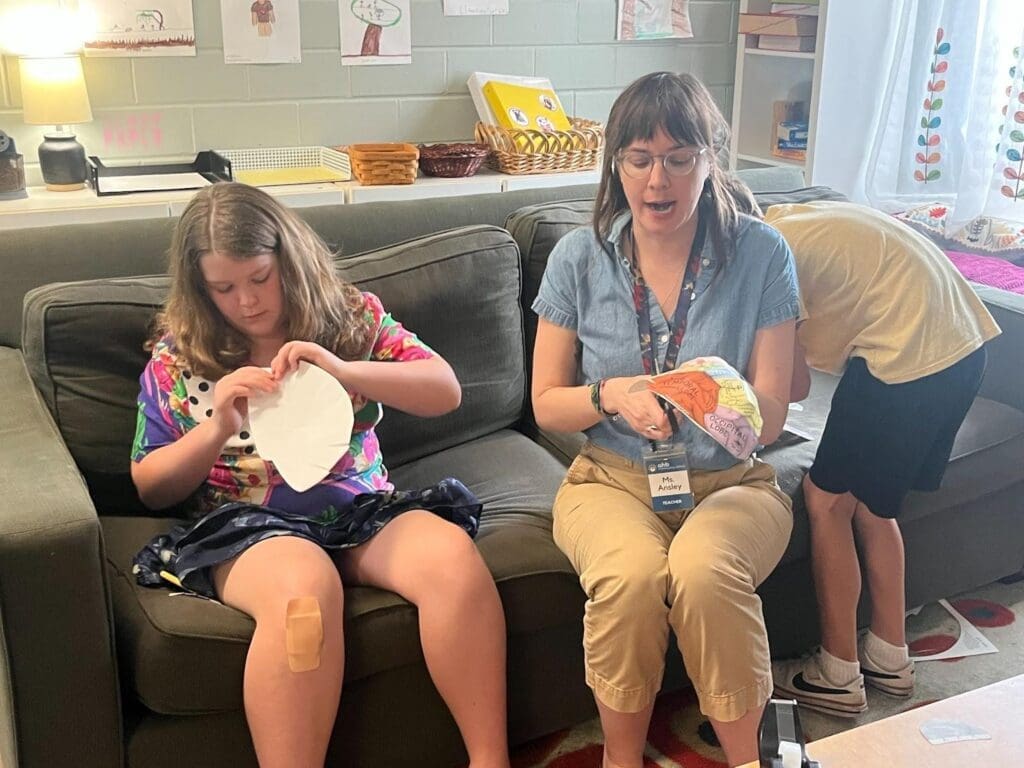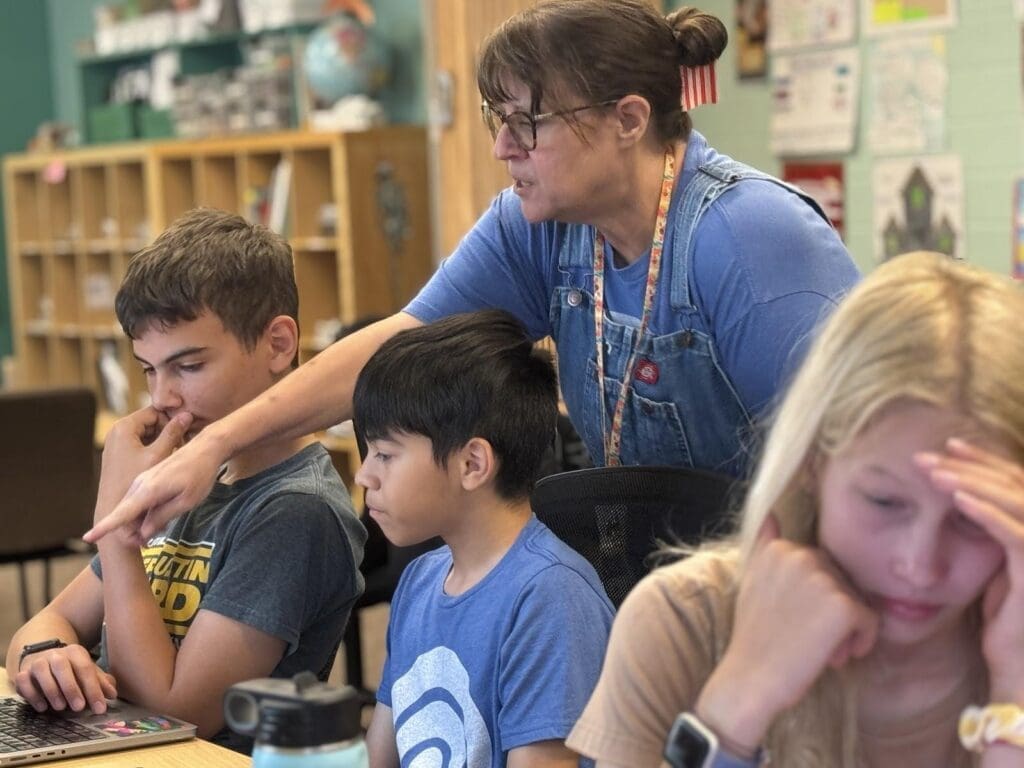Halloween
Thank you all for making our spooky day so yummy and special!
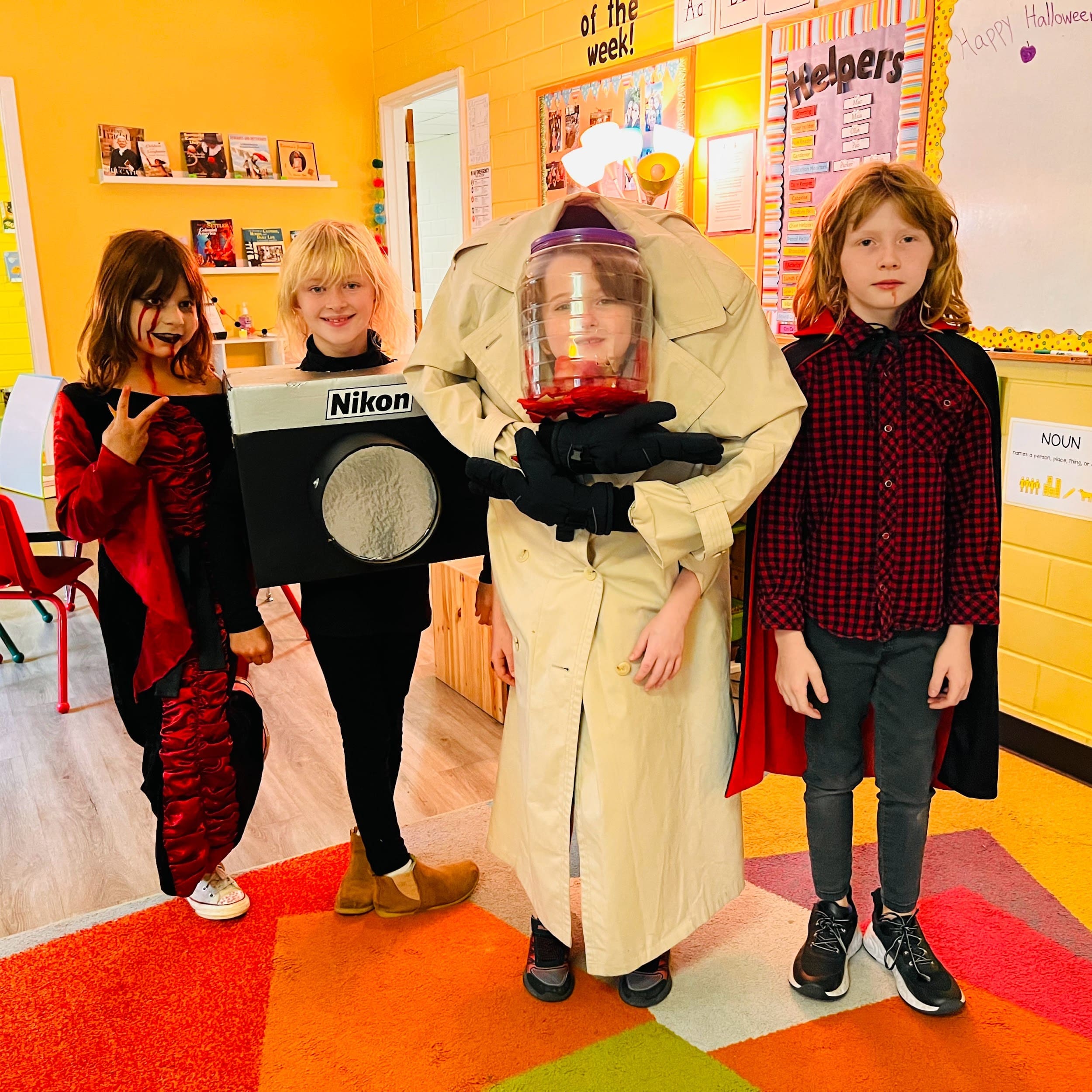 | 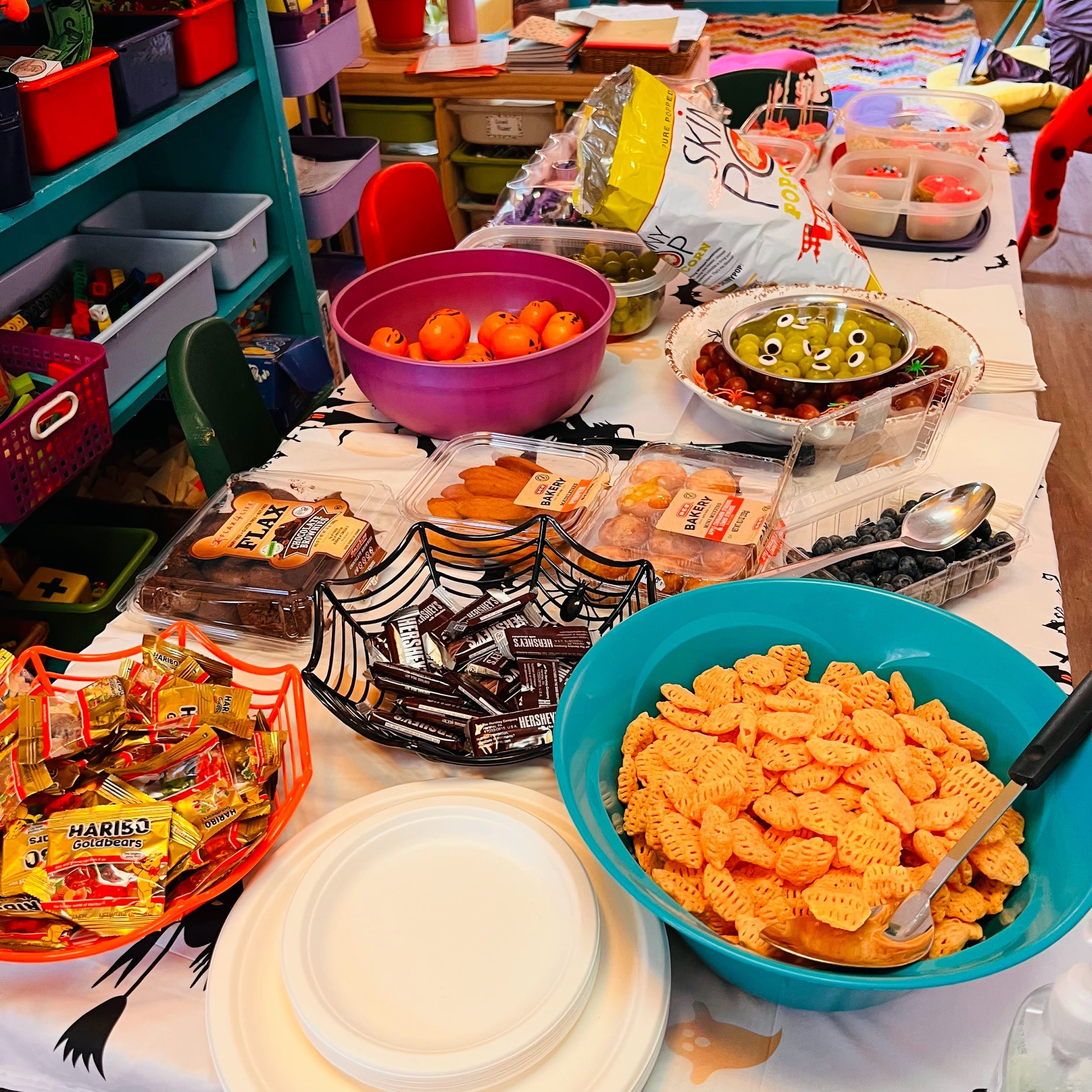 | 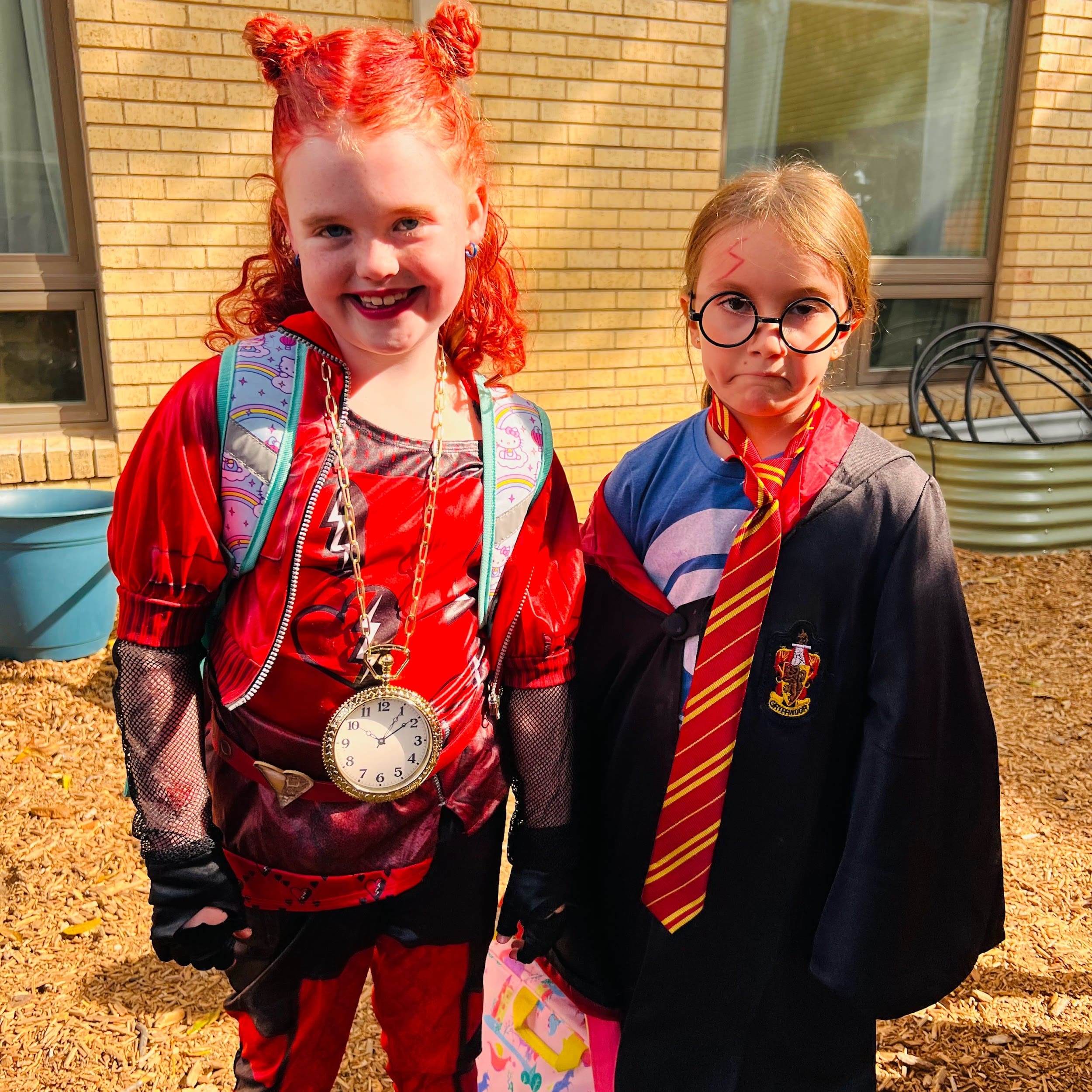 |
|---|
Math
Ms. Andrea’s math group applied 3 strategies to solve triple addend problems: choose any two, make and 10, and make a double. These Betas have it down! We had a discussion about the = symbol, & its meaning. We also learned a new game using a die to roll for each addend and 10 frames to fill up to determine our sum. We reviewed our addition strategies like doubles, near doubles, counting on, zero facts, and making a 10. We’ve learned so many tricks to help our brain add larger & more numbers! We launched subtraction with a discussion about what it means to subtract. “Taking away” sure, but also finding the difference. We learned 2 subtraction strategies: subtracting 10 and making a 10 to subtract. And the kids made abacuses to help solve subtraction problems to 20.
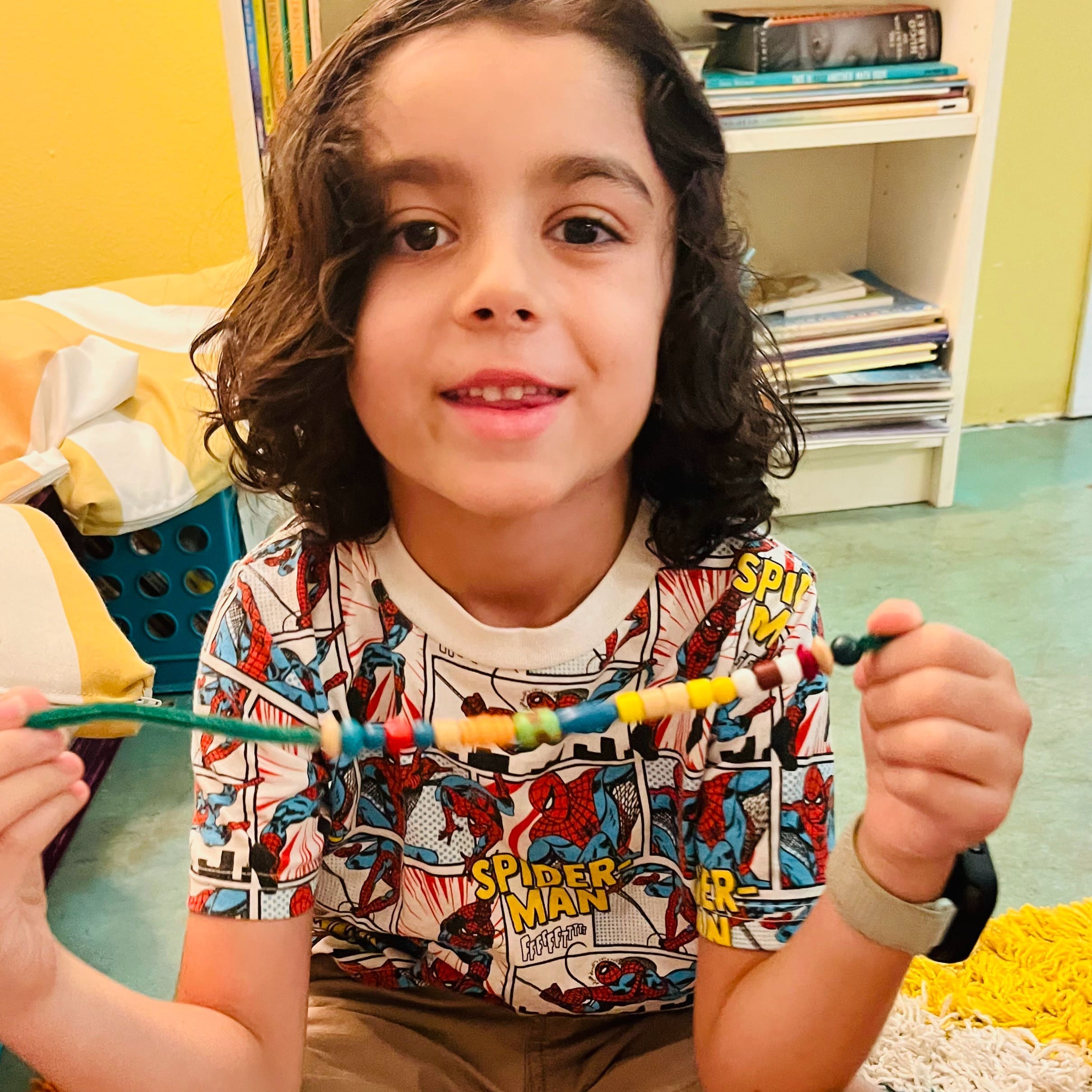 |
|---|
Ms. Kelly’s math group finished up their word problems from last week and then spent some time reviewing all of the addition and subtraction strategies before we took our post assessment. We ended the week with a quick pre-assessment for our next unit on multiplication and division!
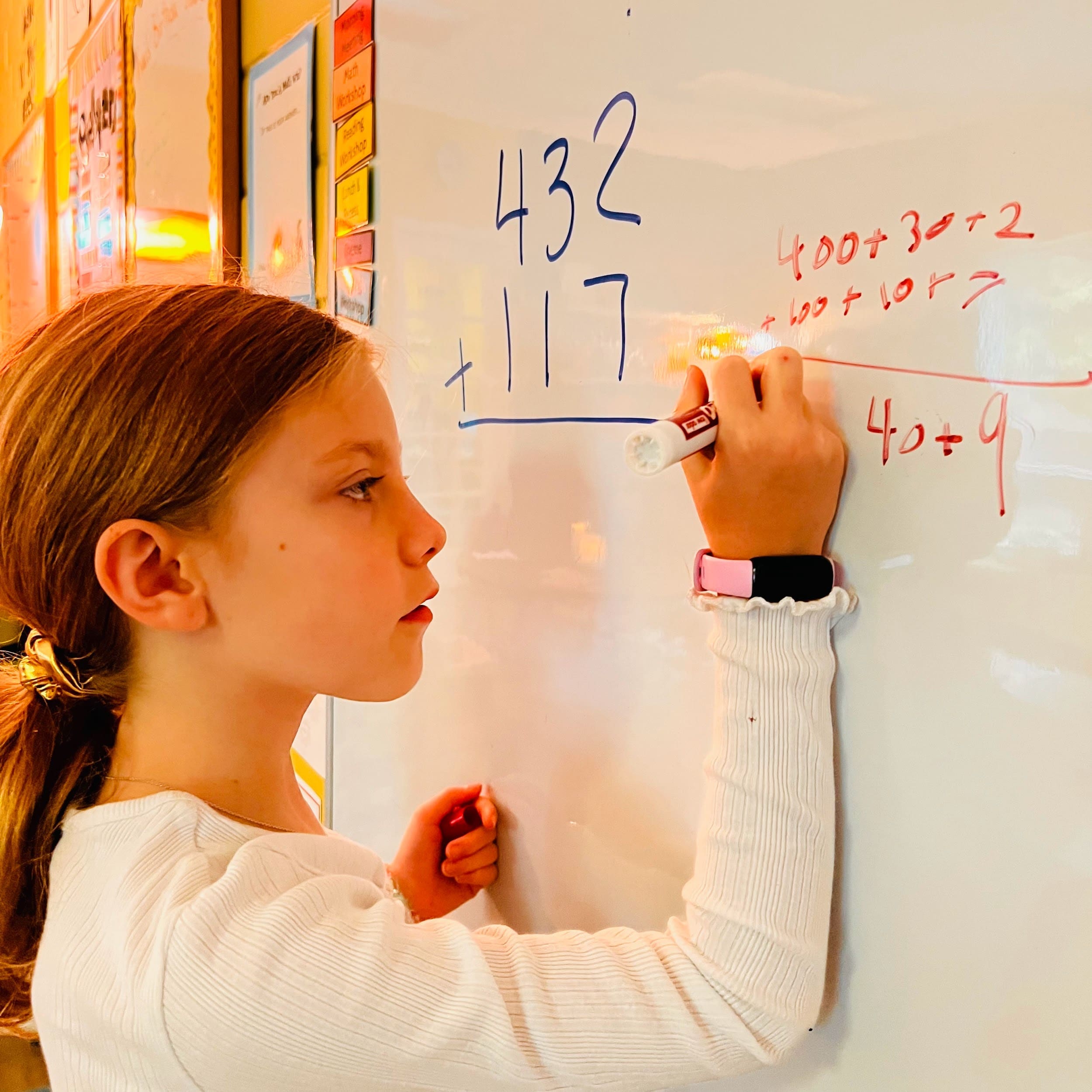 | 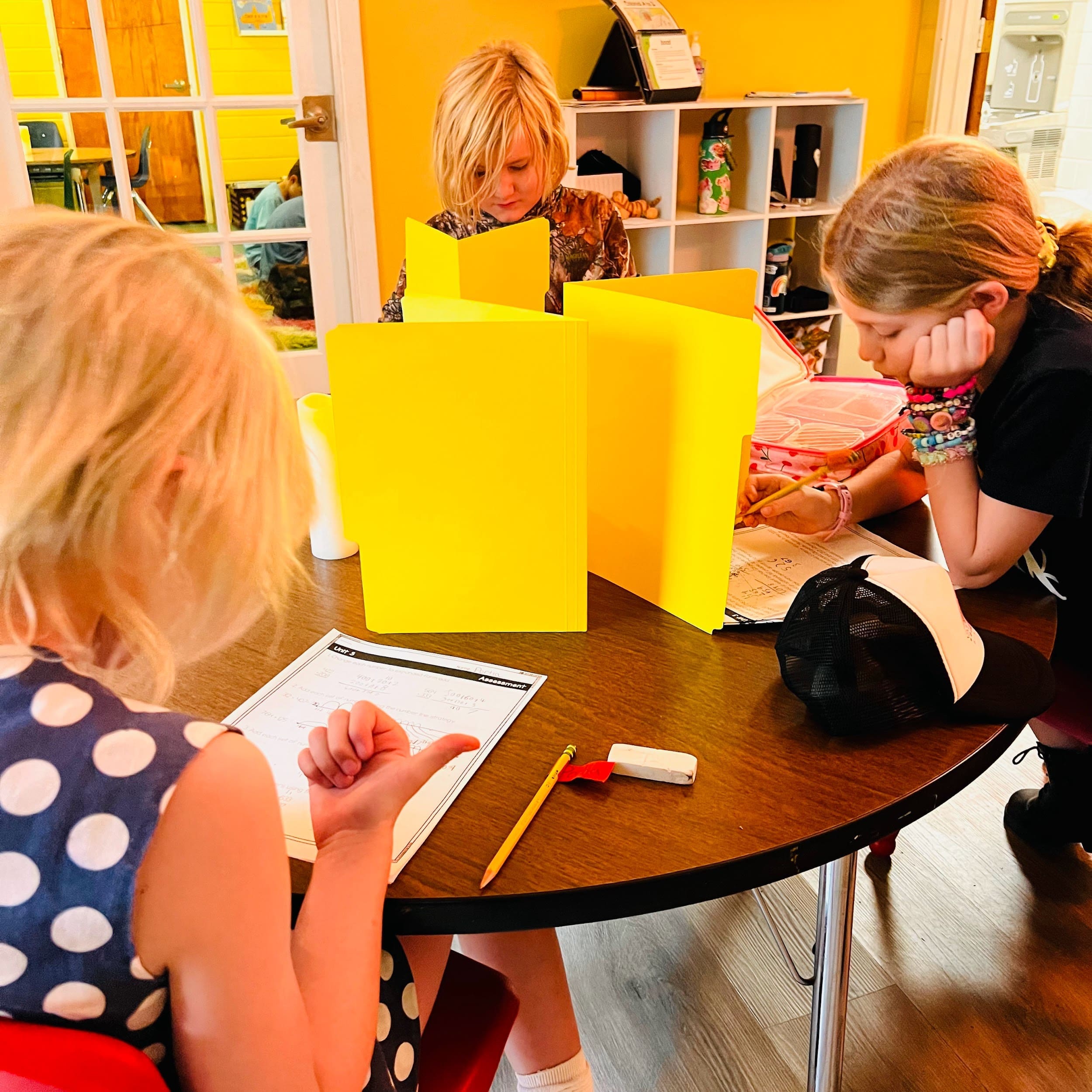 |
|---|
Reading –
We are so proud of our book club groups! We set the expectations high and the kids meet them every day! Everyone follows along as each member takes a turn to read, we hear lively discussions before writing a response, wait for friends to finish up before moving on, using lovely handwriting and working on answering in complete sentences!
Ms. Kelly’s spelling crew reviewed both long and short vowels this week. They completed a word and picture sort, practiced coding and reading nonsense words with open (long vowel) and closed (short vowel) syllables, broke multisyllabic words into appropriate open and closed syllables, and read texts with many multisyllabic words with both open and closed syllables.
Ms. Andrea’s spelling group learned about the digraph /ck/ and trigraph /dge/ this week. Both occur in words after…you guessed it, a SHORT vowel sound! They searched for words, listed words, identified short vowels, and used them in sentences.
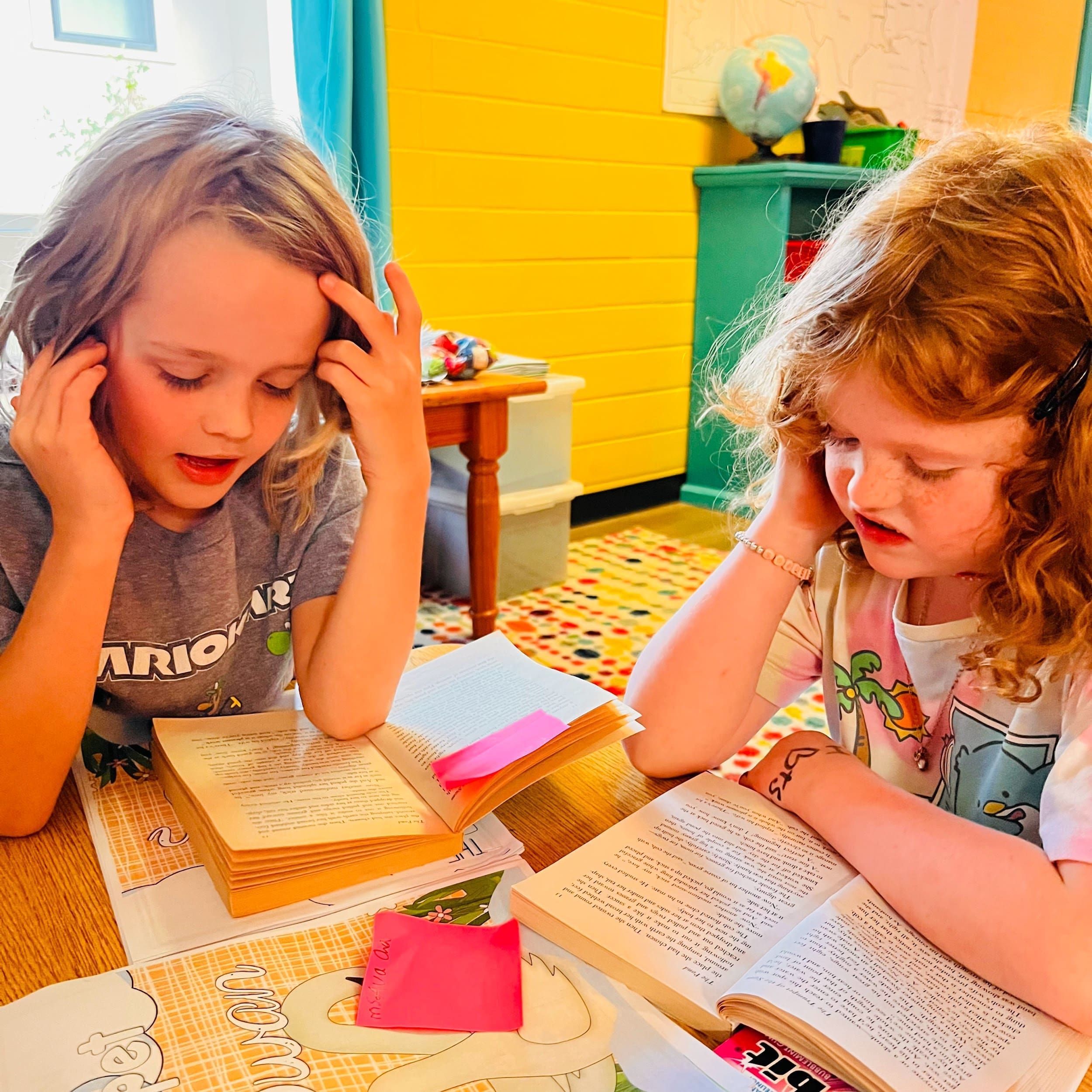 | 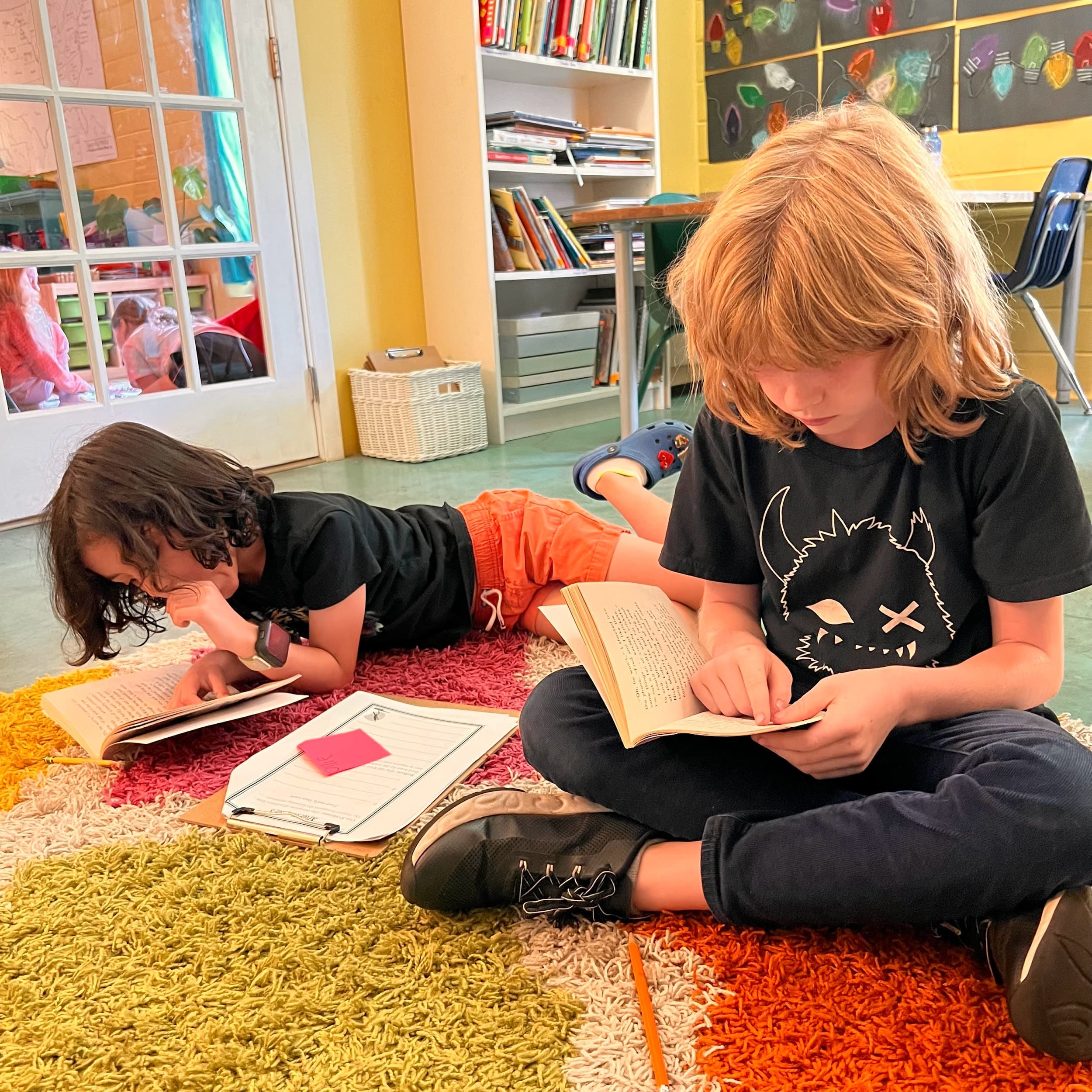 |  |
|---|
Writing –
The Betas were introduced to poetry! We listed what we already knew and then studied some common features of poems. We were so excited to jump into the Beta poetry library to peruse poems and transcribe a favorite. If you have any favorite poetry books at home, feel free to send them in!bWe spent some time sharing our chosen poems, then read a couple more, listening for the theme and determining the purpose of the author’s intentional spacing of lines. Next week we will begin to write our own pieces!
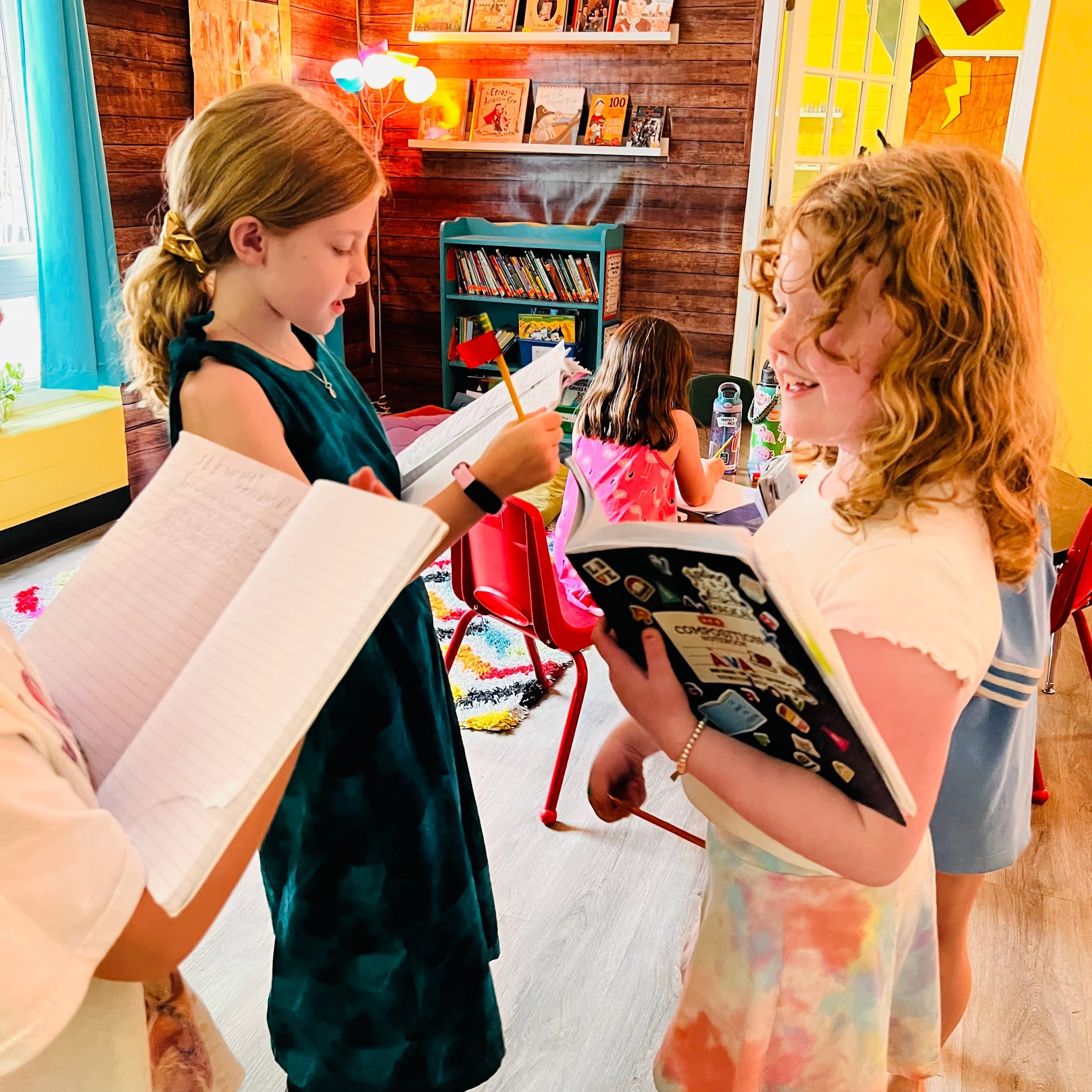 | 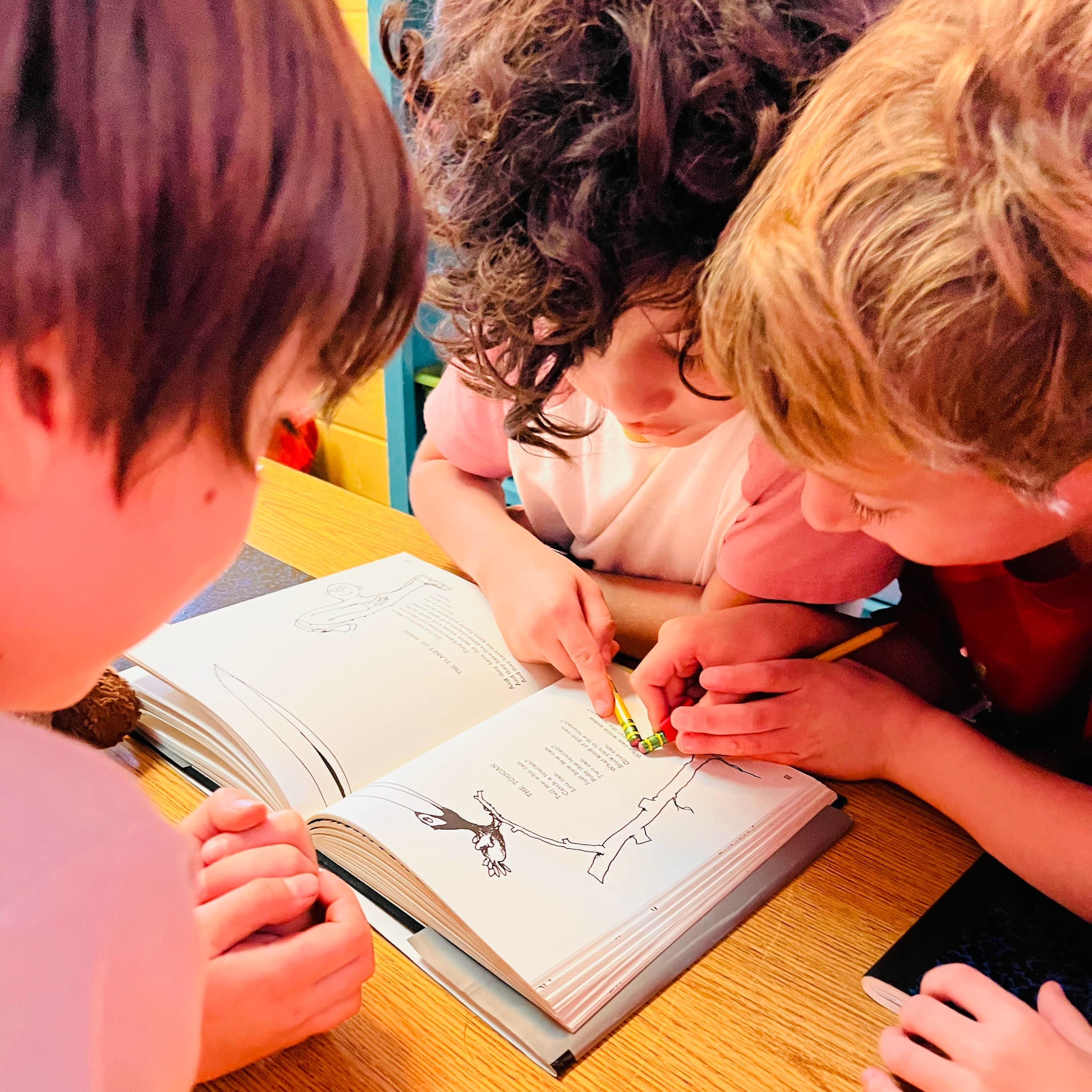 |
|---|
Theme –
In theme we discussed some of the advantages and disadvantages of choosing Jamestown to settle in. It was an advantage to have deep water available for parking ships along the shore and you could see for miles so the area was easy to defend. But the land became very swampy in the summer and the bugs and mosquitoes were horrible! The settlers also had to dig wells because the James river became salty during the summer.
When the Jamestown settlers arrived, there were over 14,000 Powhatan Indians living in and around Virginia. The great Chief Powhatan was the supreme ruler of the group. The Jamestown settlers may not have survived the early years had they not traded for food with the Powhatans. The relationship between both parties went well until the settlers began to demand more food and they began to fight. Despite Powhatan attacks, settlers continued to push the Powhatan off the land that they hunted and lived on for hundreds of years. In addition to losing their land, many Powhatan Indians were killed during times of fighting and thousands more died from diseases brought over by the English settlers.
We discussed the use of slavery in Jamestown. So often when we learn about the Colonial Times we learn about the settlers and we learn about Pocahontas, but not about the history of the Africans that were brought to our country.
We learned of the indentured servants, who were brought over from England as laborers. Most agreed to work for four to seven years in exchange for a passage to the new land. When their contract was up, they would be freed and given a small bit of land and the owners of the plantations would need more workers. It became more difficult and expensive to obtain more people from England to fill these rolls so they took another route. Enslavement of Africans became common in the late 1600s.
We gained an understanding of the difference between indentured servants and slaves and decided that indentured servitude would be much easier to take. At least you would eventually have your freedom. We also agreed that human beings do not belong to another person.
We ended the week with some hard times. The Starving Time at Jamestown was a period of starvation during the winter of 1609–1610. During this time, all but 60 of the 500 colonists died. Lack of rain and access to water had crippled the agricultural production during the summer. According to historical accounts, the colonists ate dogs, snakes, cats, rats, horses, books and shoe leather through the winter.
The kiddos participated in a simulation to gain a sense of the desperation settlers felt during the Starving Time. They each began with a food card or two (good food). Everyone at that point was still able to eat because food was still available. Each student took one card away to show that the food had been eaten. At this point, some kids still had a food card and some did not, representing that food was becoming scarce. The kids without food needed to choose from a new less desirable food pile (things like boiled shoe leather, dogs and cats, snakes and rats.) Next, the kids who still had good food no longer had any and had to choose the less desirable options, but even those options were limited.
As the Starving Time went on, the settlers became more and more desperate and needed to lower their standards. Most of us agreed that when it came down to it, we would have eaten things we never thought we would eat in order to survive, like shoe leather.
We reflected on our experience and wrote another entry in our Colonial journals about how our persona experienced this difficult time.
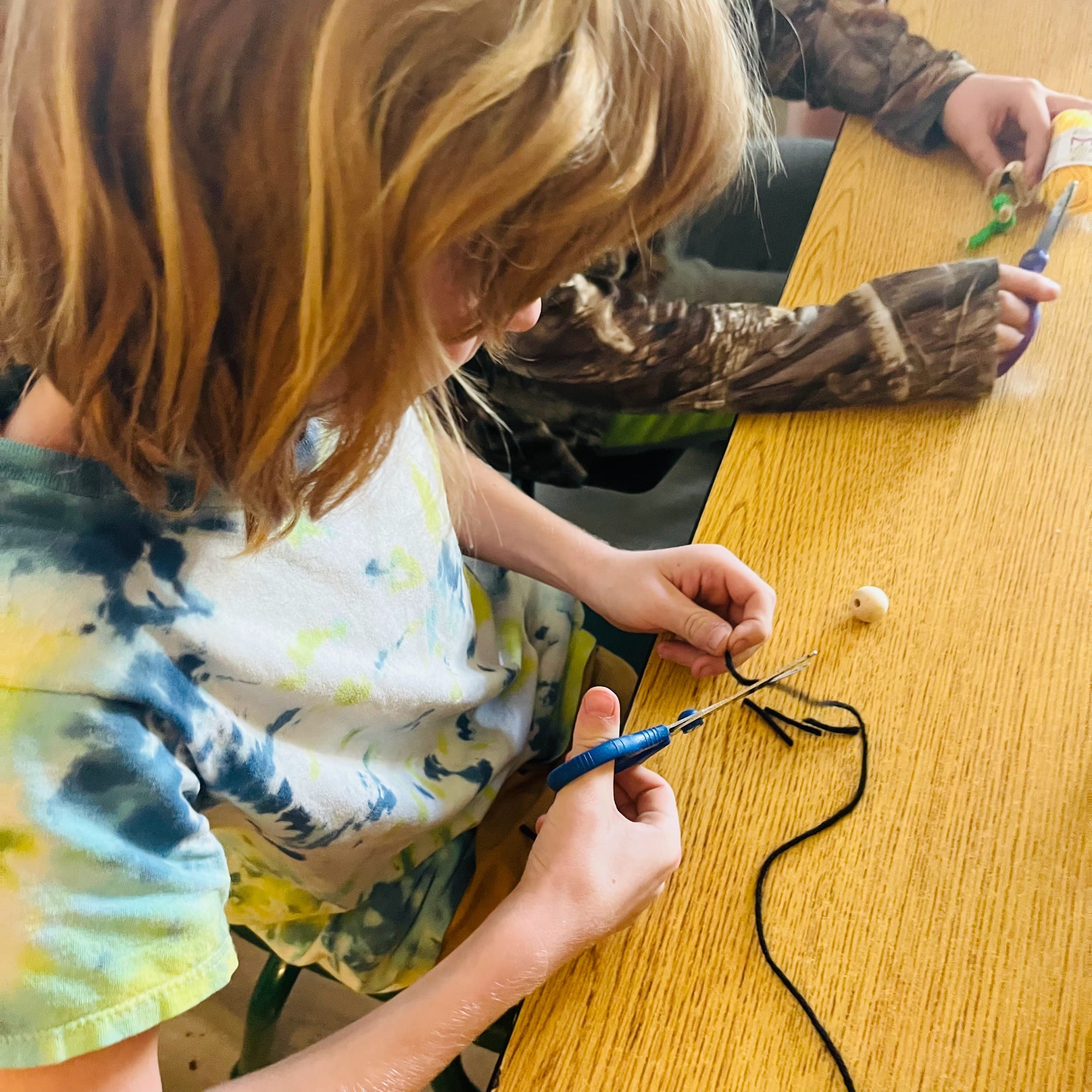 | 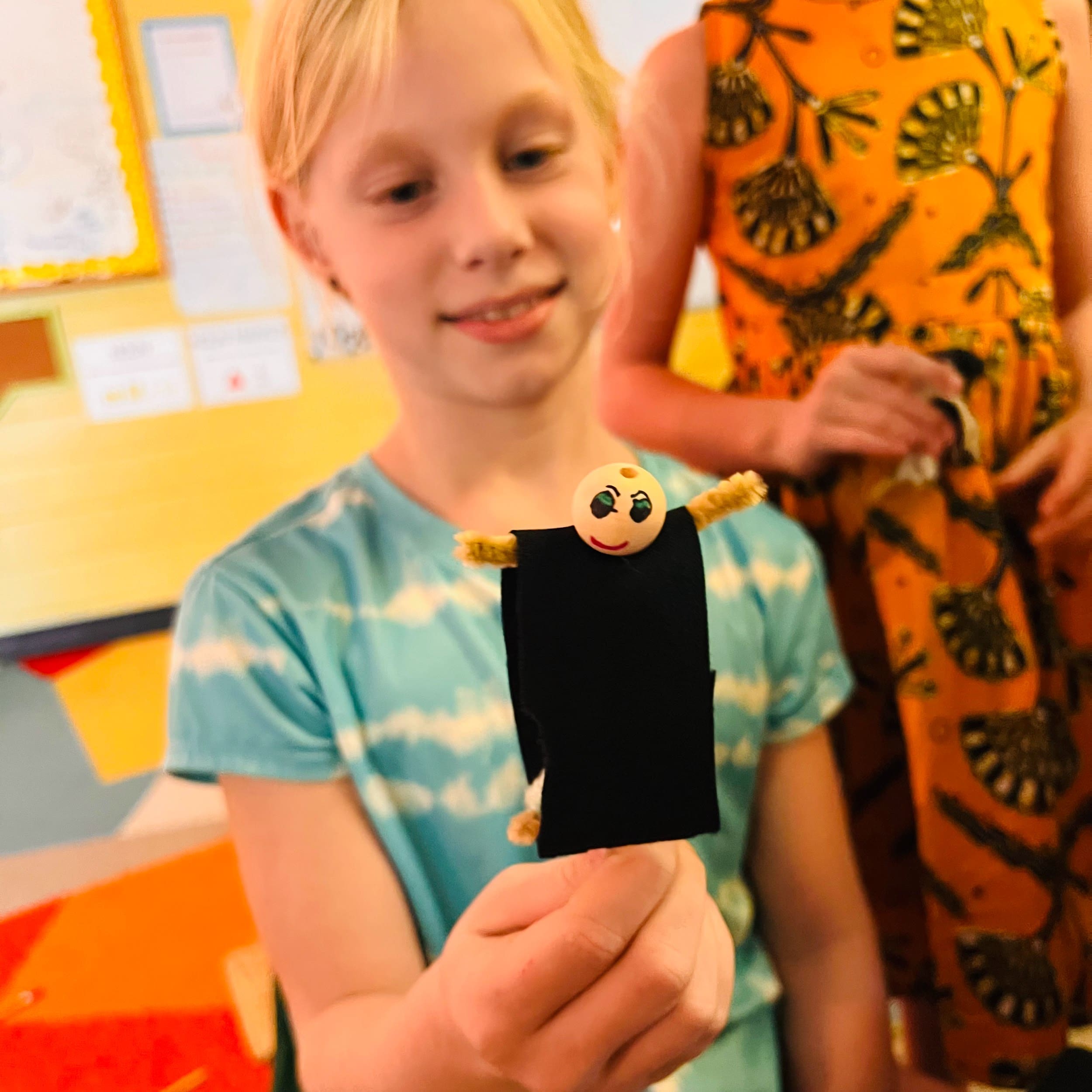 | 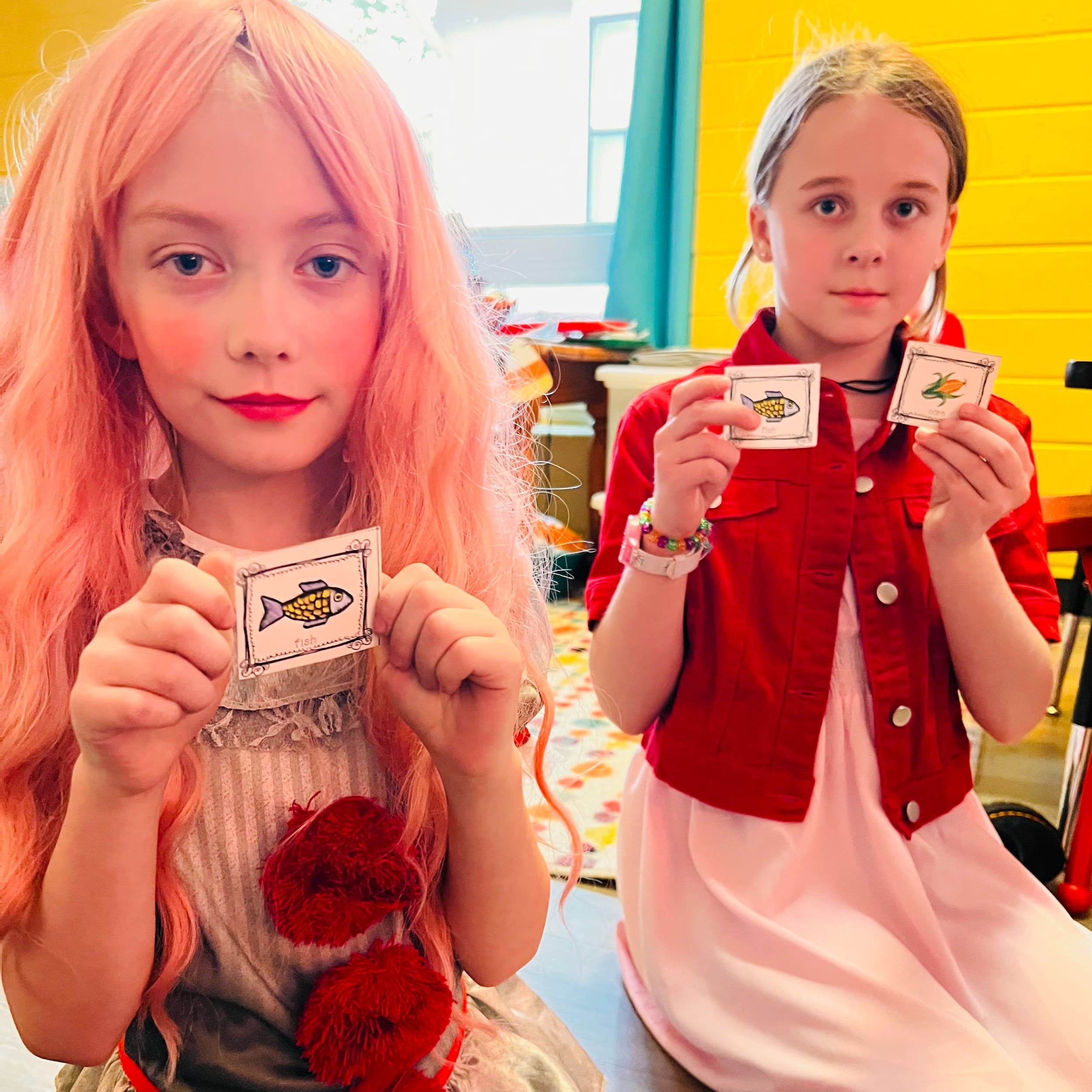 |
|---|---|---|
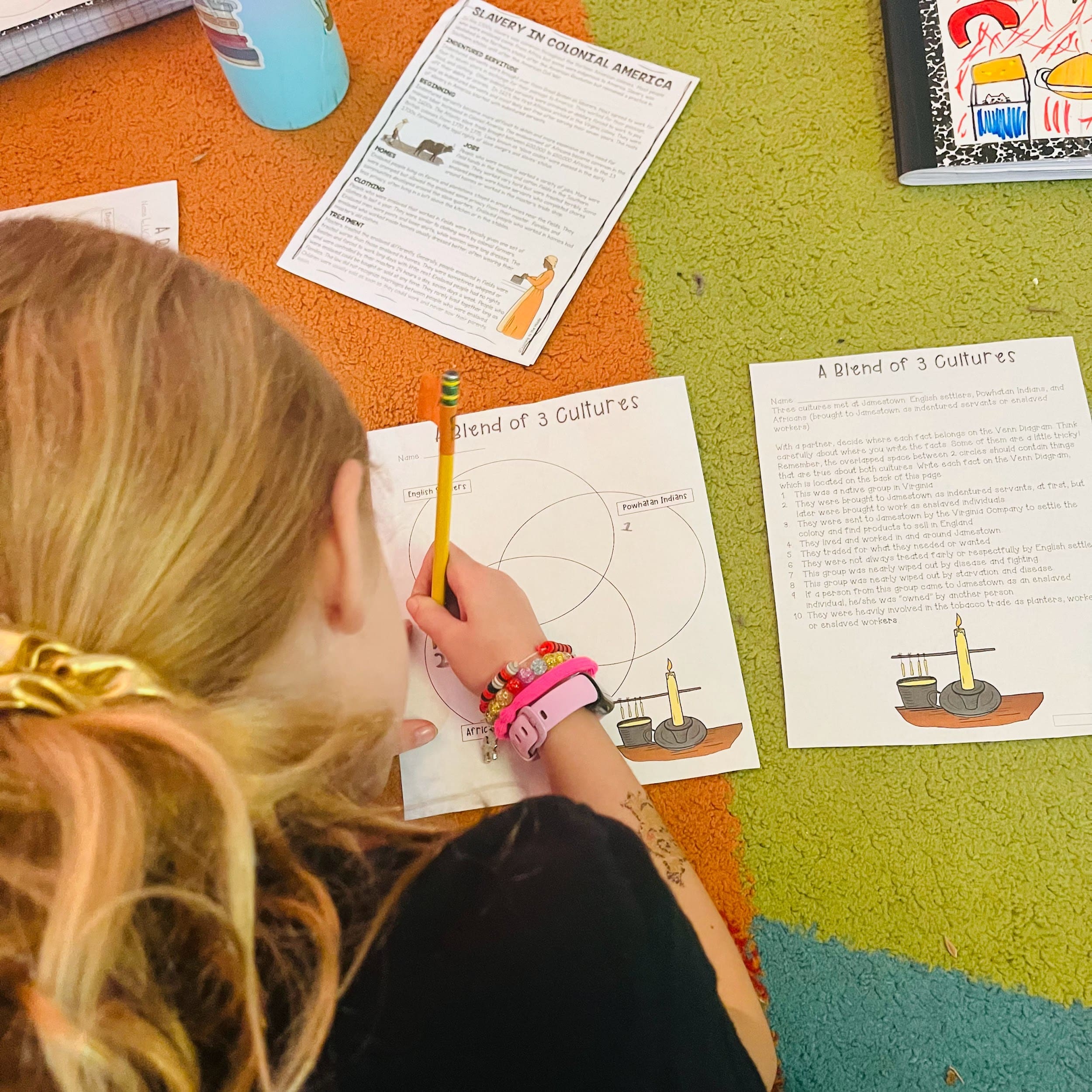 | 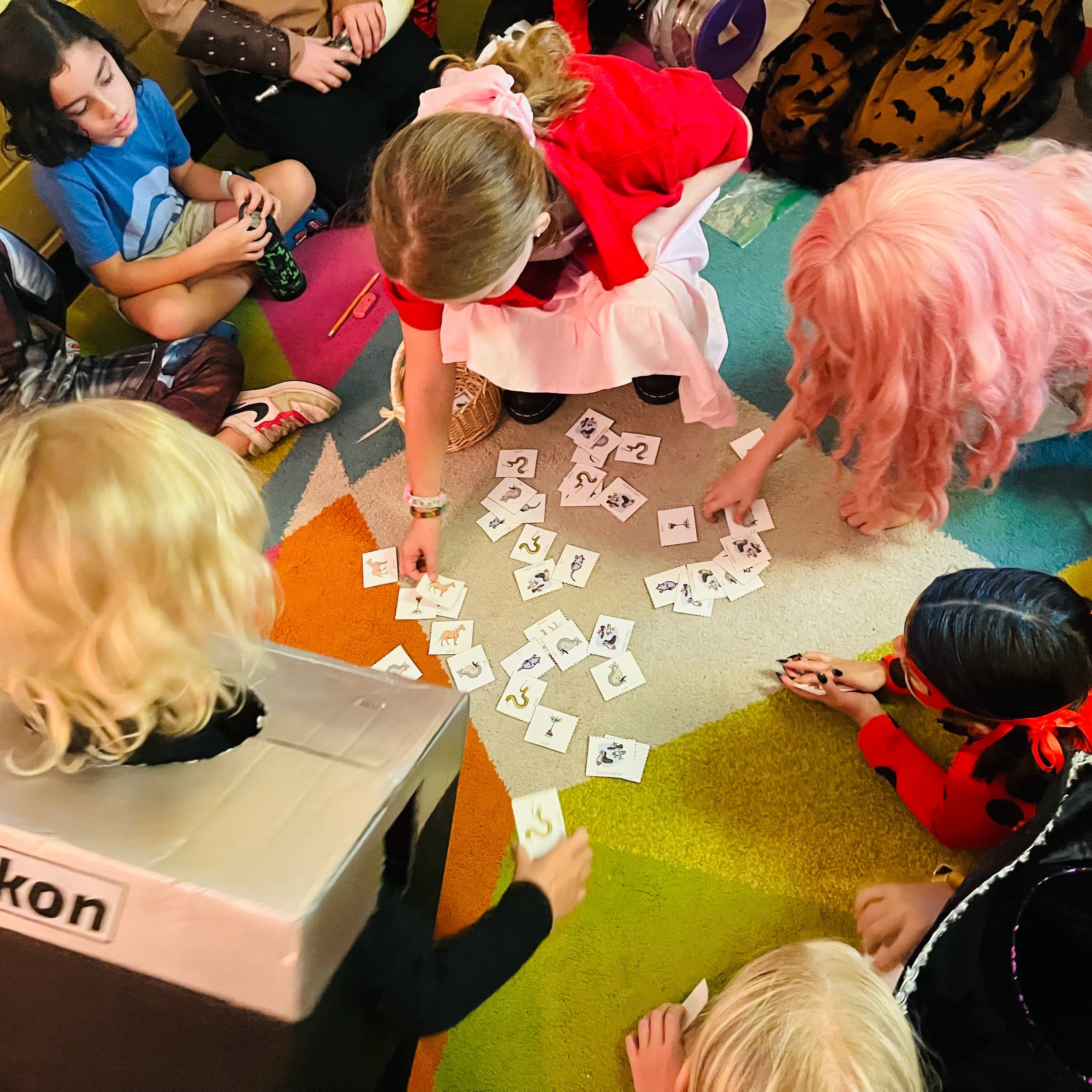 | 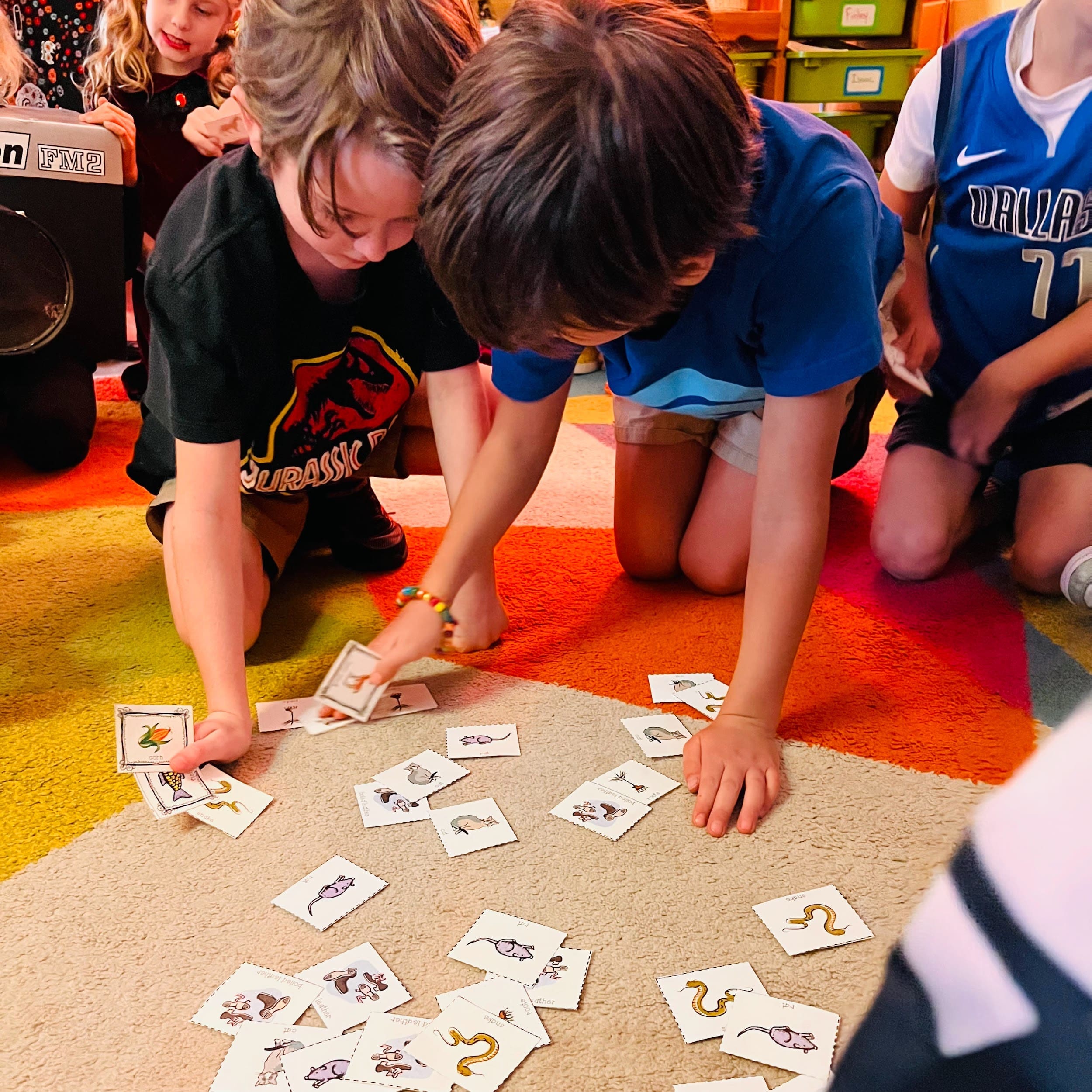 |


